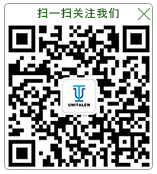A Former Distributor was Ordered to Pay Compensation of RMB 800,000 for Software Copyright Infringement and Trademark Infringement due to Selling of Pirated Software
August 2, 2021Brief of the case:
Kingdee is a well-known business management software provider, leading the industry with strong technical strength. The software KIS and software K/3 developed by Kingdee for enterprises of different sizes are well received by the market.
In 2020, Kingdee received successively two end users' requests for confirming whether the software KIS and software K/3 are genuine. After Kingdee's inspection, the relevant pieces of software were pirated software sold by Longdi.
Kingdee entrusted Unitalen to bring infringement proceedings in court. Before the filing of lawsuit, Longdi was deregistered to evade legal liability. Unitalen comprehensively analyzed the case, filed a lawsuit against Longdi's shareholders and members of the liquidation team, and collected evidence. Recently, the Kunming Intermediate People's Court determined that Longdi's infringement was true, and that Longdi's members of the liquidation team shall be liable for the compensation. Kingdee won the first instance of the case!
Main points of the case:
In this case, Unitalen's attorneys divided the infringements involved in the case into two parts, and instituted proceedings on the ground of software copyright infringement in combination with trademark infringement.
Under the situation that the infringer was deregistered, Unitalen acquired the business archives of Longdi and discovered the evidence that the company was not deregistered according to law. Based on this, the court supported Kingdee's claim that the members of the liquidation team of Longdi shall be liable for compensation for the infringements of Longdi.
Longdi, the infringer in this case, was once a licensed distributor of Kingdee, and thus the defendant made a non-infringement defense on the basis that Longdi was a licensed distributor of Kingdee. In the hearing of the case, Unitalen's attorneys elaborated on the distribution system and sales method of the genuine software, and denied the defendant's non-infringement defense.
In software infringement cases, right holders often rely on end users' reports to discover the infringements, and the corresponding evidence of the infringement profits is usually limited to the contract between the infringer and the specific end user reporting the infringement. However, the contract for selling the pirated software that had been found is usually a very small part of all the sales contracts of pirated software, which restricts the amount of compensation determined in the case to the limited contract amount and thus prevents the right holder from being adequately compensated. In this case, Unitalen's attorneys successfully acquired the tax information of Longdi, and broke the restriction of the limited contract amount of the case with the support of the tax information.
For the infringement profits from the infringing software that can be evidenced clearly, they were included in the claimed compensation for infringement of the software copyright; for the infringement profits from the infringing software that cannot be evidenced clearly, they were included in the claimed compensation for the trademark infringement. The combined proceedings ensured that the right holder can be adequately compensated.




